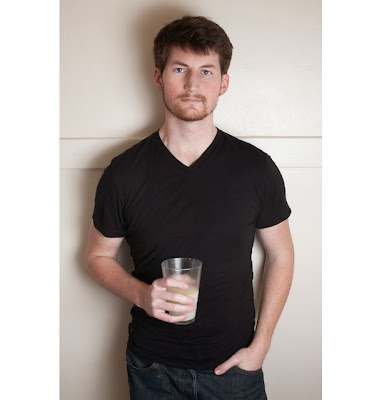Soylent - The Cure for World Hunger?
The project, however, didn’t come without its
shortcomings. Any minute change in the
proportion of an ingredient can result in an illness which Rhinehart
experienced on numerous occasions, when first tested, the formula omitted iron,
which caused Rhinehart to report his heart had begun to race. In other early experiments,
Soylent caused Rhinehart to have cardiac arrhythmia and burning sensations. There
are other drawbacks too; it doesn't keep long after mixing with water which
would make it entirely impractical for those living in LIDCs due to the lack of
clean water. In terms of first world problems, most people would deem it
unthinkable to only have Soylent for their way of food.
So Soylent is not all perfect then?
Well it’s not surprising that nutritional experts were quick to criticise it,
deeming it as "dangerous", "ludicrous", and "a red
flag for a potential eating disorder". It does seem rather improbable that one could
survive completely off a food substitute; sceptics arguing that in its present
form, Soylent may lack some nutrients essential for normal body functioning
and/or may fail to provide nutrients in appropriate proportions, potentially
causing medical problems if used long-term. However Rhinehart has supposedly
managed to subsist almost solely off Soylent for a total of seven months
without any apparent problems. He argued that ‘we need fruits and veggies, though – we
need vitamins and minerals. We need carbs, not bread. Amino acids, not milk’;
which is entirely reasonable. I admit, at first I was dubious at the prospect
of a complete food substitute but it seems unfaultable, our body needs
essential nutrients, and in their pure form, in the correct balance you avoid
the toxins, allergens, carcinogens as well as waste that you get with
conventional food, thus preventing an extensive array of illnesses, to name a
few – diabetes, obesity and cancer. Not
only this but Rhinehart claims it slightly boosts the capability of the brain
and says he feels far more alert and active.
The reason I am particularly interested in
this revolutionary development, however, is its potential to greatly benefit
developing nations. Soylent can be mostly produced from the products of local
agriculture which means this could be a
truly permanent solution for LICs. At a
world wide scale it would be immensely cheap to produce, Rhinehart suggests it
would cost no more than $35 for one fully grown man per month to have a
complete Soylent diet of 2500 calories a day. Not only this but due to the lack
of excess substances, it means that the body produces less excrement - this would be particularly beneficial for
countries in the developing world, where inadequate sanitation is a prevalent
source of disease. Concerning the environment, currently agriculture is having
a colossal impact on global warming, cattle farming and rice paddies being
amongst the major causes of greenhouse gases. These adverse effects on the
climate would be greatly reduced if Soylent were to be produced instead.
The only issue
remaining is for Soylent to actually be funded and distributed through the help
of organisations such as UNICEF,
the World Food Program, USAID and Action Against Hunger. However with over $1 million in preorders already received for Soylent
worldwide, it appears that the
solution to "the future of food" may come to fruition sooner than anticipated.
 |
| Rob Rhinehart - Pioneer of Soylent |
References:
No comments:
Post a Comment